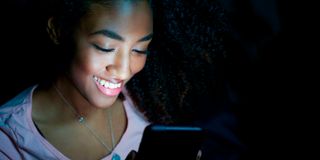Let’s make use of the digital space beyond socializing

Do not spend all your time “double-tapping” on The Gram and sharing memes on your socials; dig deeper
Millennials and GenZs have been touted as digital natives. Studies show that we eat, drink, and breathe the Internet. Our reputation is that we are experts in the use of the digital space. We know how to find everything we need online.
I don’t know about you but when I meet someone for the first time (whether they are a speaker at an event I am going to, or a new lecturer at the beginning of a semester) the first thing I do is “google them”. And yes, I would be lost without my phone.
Our comfort and ease of using the Internet must count for something, professionally. We have the advantage of accessing opportunities and learning from people around the world. Let’s make use of the digital space beyond socializing.
Besides my day job, I compile opportunities for young people every Friday on My Network magazine in the Daily Nation. While the space set aside in the newspaper only allows four opportunities to be published each week, there are tons of opportunities on the web – including volunteer opportunities, internships, and attachments, fellowships, scholarships, mentorships, training, contests, free courses and workshops that you can apply for. Do not spend all your time “double-tapping” on The Gram and sharing memes (I like memes by the way) on your socials. Venture a little deeper.
Work experience
Opportunities don’t, however, only come on the Internet. Sometimes even just walking up to your lecturers to ask if they know of events or opportunities where you can apply the knowledge you are learning in class, could be all you need to be an assistant on that project, which will give you that ‘elusive’ work experience.
When I was 24 years old, I had a solid five years of work experience courtesy of my lecturers, mentors, and the applications I took a chance to write.
I completed high school when I was 16 and during the two years I waited to turn 18, become an adult, and join university, I kept myself busy by, among other things, writing stories I imagined big newspapers would publish.
No portfolio
At 17, I applied for and got selected for a writing workshop run by Lola Kenya Screen for children and youth. That was my first experience with professional development. I also set up a blog (writingisfighting.wordpress.com). What I did not know at the time was, the nights I stayed up to write about an interesting movie I had watched, or critique an advertisement I felt didn’t fully speak to the issues it set out to, I was training myself to write. I also gained the additional skills of setting up and managing a WordPress site.
PS: Setting up a blog is free, by the way, so you cannot be a writer with no portfolio and say “you did not have an opportunity”. No editor worth their title and experience will believe you.
What are my propositions, therefore? Building experience begins with spending your free time in school positively. Participate in club activities, sign up for relevant events, read books, participate in contests, and so on. This helps you understand yourself better, gives you transferable skills, and prepares you for the workplace.
Group discussion
On this journey, you will need self-drive to open your eyes to the opportunities around you. You must be willing to push yourself out of your comfort zone. To try something more than once. To write that application you have been meaning to write. To research and find out what opportunities there are – to volunteer, build the skills you need, and learn more about what you are passionate about. And what communities of young people exist whose missions are aligned with yours.
Procrastination and its twin, delay will keep you in a corner and convince you that the world owes you sympathy. Don’t fall for that trap. That group discussion you willingly lead, the call for volunteers for the school concert you sign up for, and the YouTube channel you set up to advise freshmen how to navigate assignments in their first year of Actuarial Science, are not in vain.
The writer is the Impact Editor, NMG





